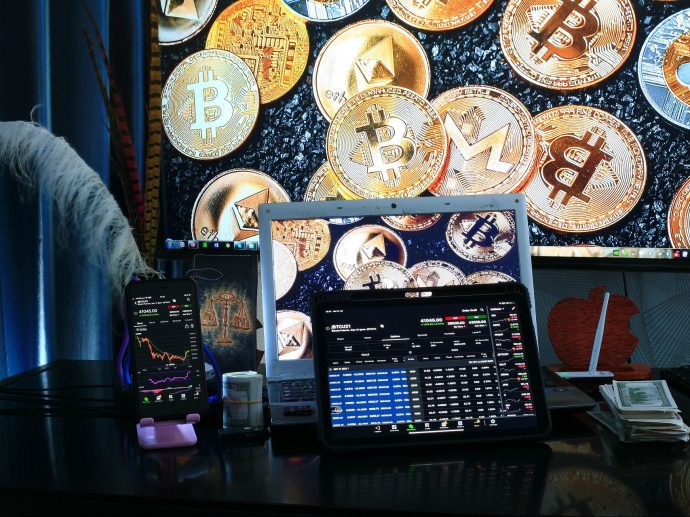Categories more
- Adventures (17)
- Arts / Collectables (15)
- Automotive (37)
- Aviation (11)
- Bath, Body, & Health (77)
- Children (6)
- Cigars / Spirits (32)
- Cuisine (16)
- Design/Architecture (22)
- Electronics (13)
- Entertainment (4)
- Event Planning (5)
- Fashion (46)
- Finance (9)
- Gifts / Misc (6)
- Home Decor (45)
- Jewelry (41)
- Pets (3)
- Philanthropy (1)
- Real Estate (16)
- Services (23)
- Sports / Golf (14)
- Vacation / Travel (59)
- Watches / Pens (14)
- Wines / Vines (24)
- Yachting / Boating (17)
How To Stay Safe When Trading Crypto
Published
11/29/2024Crypto trading is more popular than ever. A growing number of us are investing in crypto as an alternative to savings accounts and stocks. Meanwhile, more companies are accepting cryptocurrencies like Bitcoin as payment, making crypto a popular alternative currency.
Unfortunately, this popularity has led to an increased amount of scammers and hackers targeting the crypto market. It’s therefore important to take certani security measures when trading crypto. This post details a few important safety measures worth considering.
Use two-factor authentication on your account
Two-factor authentication involves using a password and one other form of identity verification. These two layers of security make it much harder for a cybercriminal to hack into your crypto account.
Most crypto exchanges will allow you to activate two-factor authentication, with some providing it as the standard login method. This typically involves a password and a one time code sent to your phone. You can also use services like Yubikey - a hardware device that generates a unique code to use every time you want to log in. Don’t just rely on a single password.
Choose a strong password
This is an obvious one, but one that is worth mentioning. A weak password could make it easy for a hacker to gain entry to your crypto account. Make sure that you use a strong password.
The password should be at least 12 characters long, and it should include a combination of letters and numbers. Using a mix of uppercase and lowercase letters can further increase strength, as can using symbols. Avoid obvious passwords that use your name or date of birth.
Store your crypto in a cold wallet
Cold wallets are essentially purpose-built flash-drives to store your crypto on. They are not connected to the internet, making it impossible for a hacker to get hold of your crypto.
You should only store cryptocurrency in your hot wallet (the wallet linked to your account, which is connected to the internet), if you are about to use it to trade with or your account requires a minimum balance. Otherwise, you should keep as much of your crypto offline as possible when not in use.
Avoid trading on public wi-fi
Public wi-fi is more vulnerable to hackers than private wi-fi. This includes wi-fi found in restaurants, hotels, airports and hospitals.
Try to only trade cryptocurrency while connected to private wi-fi to reduce your risk of being targeted by cybercriminals. Alternatively, always use a VPN when using public wi-fi - this can allow you to use the internet anonymously, protecting your personal details.
Confirm wallet addresses beforehand
When paying cryptocurrency to someone else, it is essential that you check their wallet address. You do not want to send crypto to the wrong person as the transaction cannot be reversed.
If you’ve copied an address to send funds to, double-check the address for typos and missing characters. For those receiving the wallet address from someone else, it’s possible to ask for a QR code for the address. You can use the Bitcoin wallet app to scan the QR code, which could avoid any errors made from manually typing it in.
Check transactions using block explorers
Block explorers like Base block explorer can be used to monitor blockchains and check the progress of cryptocurrency transactions. They are useful for checking that a transaction has been successful. Some scammers may claim that they haven’t received the money, and a block explore will be able to confirm if that is the truth or not.
Block explorers can also be used to confirm wallet addresses. If you’ve previously traded with a user, you can check their previous wallet address against the existing one to see if it matches. Just make sure to use the right block explorer.
Be wary of new coin scams
ICOs (Initial Coin Offerings) can be attractive for investors. But you need to be certain that an ICO is real. There have been many cases of fake ICOs tricking people into fraudulent fundraising campaigns. The criminals hosting these ICOs then take everyone’s money and disappear without a trace.
How can you tell if an ICO is genuine or not? All ICOs must be registered with the Securities and Exchange Commission (SEC), and you can contact the SEC or download information to check if an ICO is registered. The level of transparency can also determine whether an ICO is genuine. The people behind the ICO shouldn’t be anonymous - an honest ICO project should be organised by people who are willing to reveal their identity.















